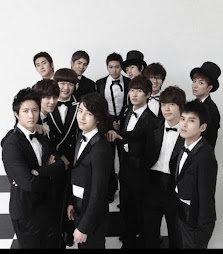A To understand this lesson is easy. B It is easy to understand this lesson. |
In this pattern, it has no meaning. It is used only to fill the subject position in the sentence. Thus, it is called introductory “it”.
A and B mean the same thing, but sentence B is more common and useful than A. A was introduce mainly to make the meaning of C easier to understand.
Introductory “it” can fill the position both of the subject and object.
Introductory “it” as a subject:
To watch musical programs is pleasant.
It is pleasant to watch musical program.
To play football must be fun.
It is fun to play football.
Introductory There
The structure there + to be is very commonly used to say that something exists. There is normally an adverb of place. But the introductory there does not have any adverbial sense and is merely used to introduce the sentence.
There are many stars in the sky.
This sentence can also be written as ‘Many stars are in the sky’.
This sentence can also be written as ‘Many stars are in the sky’.
But normally the form with there is preferred, though the real subject is many stars.
There is some water in the bottle. (More natural than Water is in the bottle.)
There is a hole in my socks. (More natural than A hole is in my socks.)
There is a bridge over the river.
There were few very accidents last year.
There is no way out.
There have been many such incidents.
There are some people waiting outside.
There is something wrong with him.
There is no point in talking about it again.
There is no going back on it.
There is no denying the fact that she stole the money.
There is a hole in my socks. (More natural than A hole is in my socks.)
There is a bridge over the river.
There were few very accidents last year.
There is no way out.
There have been many such incidents.
There are some people waiting outside.
There is something wrong with him.
There is no point in talking about it again.
There is no going back on it.
There is no denying the fact that she stole the money.
Introductory It
When the subjective is an infinitive phraseWe begin a sentence with it when the real subject is an infinitive phrase. So instead of saying, ‘To accept your advice is difficult’, we say, ‘It is difficult to accept your advice’.
Structure: It + verb + subject complement + infinitive phrase (real subject)
It is easy to learn English. (= To learn English is easy.)
It is easy to find fault with others. (= To find fault with others is easy.)
It is difficult to know his motive. (= To know his motive is difficult.)
It is difficult to find a good job during these troubled times.
It is dangerous to play with fire.
It could be dangerous to drive so fast.
Note that when we wish to emphasize the infinitive phrase, it may be put at the beginning, especially when it is short.
To err is human. (OR It is human to err.)
To become a well known writer was his life-long ambition. (OR It was his lifelong ambition to become a well known writer.)
To invest all your money in shares is foolish. (OR It is foolish to invest all your money in shares.)


Tidak ada komentar:
Posting Komentar